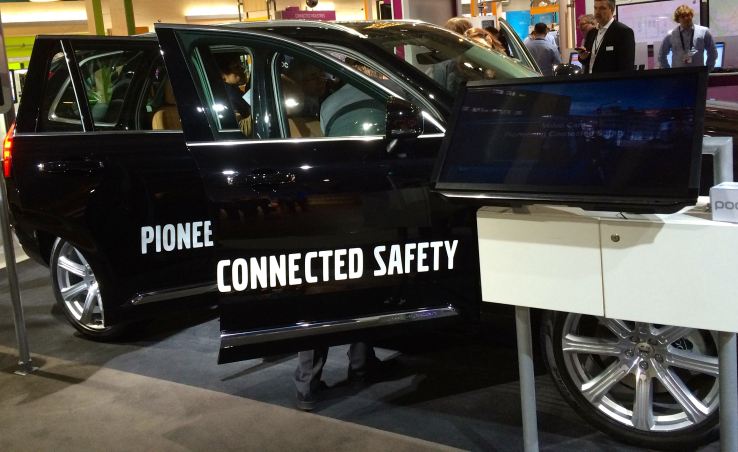 Imagine you’re driving down the road in winter and you encounter a
patch of black ice. Your car swerves treacherously, and as it does, the
built-in sensors in the automobile detect it, collect the location of
your car and share the data to the cloud. The next car equipped with
this advanced system that comes down the same road will get a warning
communicated from the cloud as it approaches the dangerous stretch of
road.
Imagine you’re driving down the road in winter and you encounter a
patch of black ice. Your car swerves treacherously, and as it does, the
built-in sensors in the automobile detect it, collect the location of
your car and share the data to the cloud. The next car equipped with
this advanced system that comes down the same road will get a warning
communicated from the cloud as it approaches the dangerous stretch of
road.That’s the vision Swedish carmaker Volvo has for a new generation of connected cars it showed off this week at Mobile World Congress.
The data from the car’s sensors gets transmitted to a private cloud set up by Volvo’s technology partner Ericsson to capture, process and distribute it to participating drivers who could also be affected by the conditions based on their location.
“As part of this technology enablement, we are able in an innovative way to use the cloud to provide additional benefits like road friction information,” Klaus Kendrick, VP and Group CIO at Volvo said. He sees this approach as a creative differentiator in an increasingly competitive automotive market.
We have seen connected cars in various guises for years with systems like GM’s OnStar providing real-time in-car assistance or remote starting, but this approach is unique because the information gets transmitted to a private cloud, Kendrick explained.
For the first generation of this service, it will also provide information when traffic has come to a sudden stop on the highway. If you’ve ever been on the highway and had traffic stop suddenly in front of you, you know it’s highly disconcerting. If the Volvo system senses this has happened several times, it will transmit the information to other drivers, letting them know traffic is slowing ahead and providing further instructions.
This service will depend on the road and whether several other cars have also had to stop suddenly. They don’t want to share information about a backroad with lots of stops and starts or because an individual randomly braked hard.
For starters, the service will be available in certain Volvo models in Sweden and Norway where the car maker has a significant marketshare, but Kendrick expects the program could be expanded, and can envision a time when it could communicate to all properly equipped cars, regardless of the make.
In case you’re wondering, he says there is no personal data transmitted as part of this process.
He can see this service developing further over time, and perhaps expanding as more companies get involved.”We are leading this development, but the industry is still young,” he said.
He adds, “Over time other car makers have to be involved to make it more useful.”